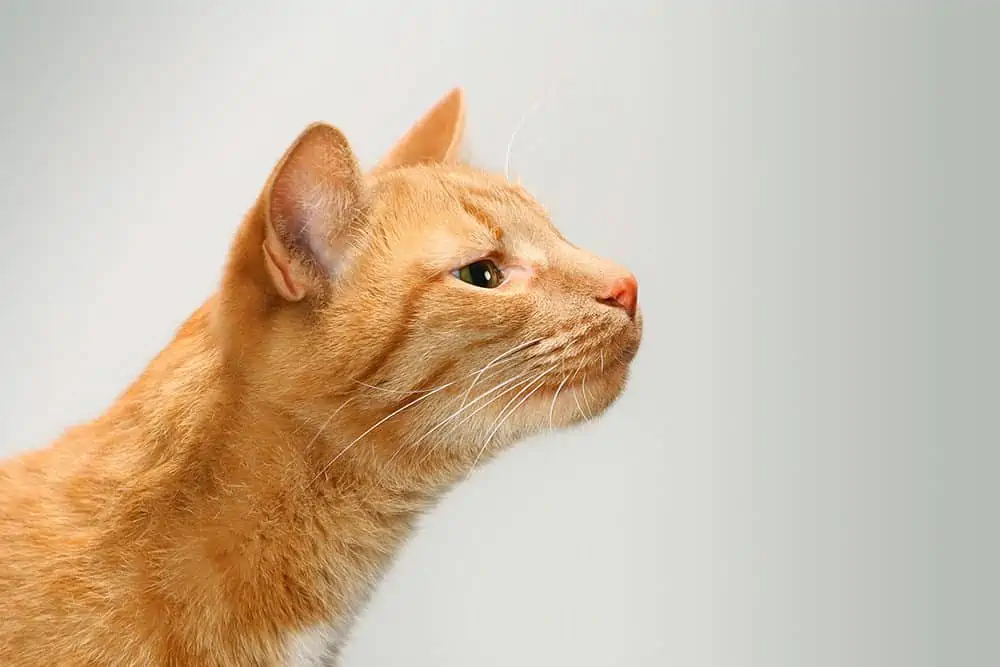
While we humans interpret our world mainly by sight, a cat’s world is defined by scent. This is why they continually mark their home and their humans by rubbing around sofas, door frames, table legs, laptops and us to deposit their feline facial pheromones.
By creating these unique scent profiles around their environment, a cat can feel safe and secure. Felines feel happiest when everything around them is just so – and ideally smells of them. As well as creating and maintaining their safe, pheromone-drenched home environment, cats use scent in many other ways.
SCRATCH THAT!
Cats don’t just scratch to keep their claws in optimum condition. There are scent glands in their paw pads which get used every time an object is scratched, leaving both a visual and olfactory sign that says: ‘this is mine’. This is why, despite supplying top-of-the-range, catnip-infused scratching posts, your cat will still claw at your furniture and make a beeline for that brand new sofa with an unfamiliar odour. To your cat, the offending item must be anointed with their personal scent signature before it can possibly be considered an acceptable addition to the lounge…
WHO’S BEEN ON MY PATCH?
Cats spray and use their scent glands to mark out their territory boundaries. Any passing cat who smells these signals will have to decide whether to respect the other cat’s territory, or risk a confrontation if they dare to cross the border. When your cat checks out their boundary and discovers another feline has left their mark, they will be able to determine how long ago it was made and which direction the intruder was travelling in.
DID YOU KNOW?
Cats have scent glands on their paws pads, their cheeks, on their head and under the base of their tail. Scent glands release pheromones, which are chemicals that provide information.
WHERE HAVE YOU BEEN?
When two friendly cats meet each other, or when your cat greets you as you come through the front door, a lot of delicate sniffing is involved in the hello process. For cats, smelling each other is a form of greeting. It also reveals lots of information about where the cat/human has been, which the cat decodes, assesses and decides how they feel about it. If your cat gets a whiff of you then turns tail and skulks off, you can deduce that he or she is not particularly impressed with where you’ve been or what you’ve been doing!
PREY OR PREDATOR?
One of the skills that make cats so efficient hunters is their sense of smell – they often pick up the scent of potential prey in the vicinity before sensing any other clues. Their superior scent sense also enables them to be aware of the presence of predators, so they can silently slink away to safety.
Have you watched your cat entering the great outdoors, with their head held alert, whiskers a-twitch, nostrils wide open and a sardonic smile upon their face? Your favourite feline is sniffing out potential danger, aided by one of its most powerful accessories – the Jacobsen organ.
This clever piece of anatomy is located in the roof of a cat’s mouth – snakes and a few other mammals also have it. By opening their mouth in a feline grin (what’s known in technical terms as the Flehman response), they are enabling the Jacobson’s organ to open up the ducts that connect to the nasal cavity. This helps your cat ‘taste’ scents, analyse pheromones and consider the finer points of a particular aroma. If they come straight back indoors you can surmise that the coast is not clear.
IS IT GOOD ENOUGH TO EAT?
Cats are lacking in the sense of taste department and are far more stimulated by smell when it comes to deciding on whether something is safe or tasty to eat. Fussy feline eaters may be persuaded to dine if their food is warmed for them, enhancing the odour. Serving on a silver platter is optional…
WHEN CATS NEED HELP FROM THEIR HUMAN
Respecting your cat’s sense of smell is essential for every cat owner. Understanding its importance enables humans to empathise with the stress that can be caused by any changes to your cat’s environment that disrupts the scent profile they have worked so hard to create and maintain. Whether it’s a major event, such as moving home, bringing a new baby home or the demise of a companion – or even something that seems pretty insignificant to us, such as a new carpet – these changes have a huge impact on cats and can make them anxious and withdrawn.
In these instances, the use of calming synthetic pheromones such as Feliway or Pet Remedy can be helpful. These work alongside the brain’s neurotransmitters, which are messengers that tell the nerve receiving the message either to get ‘fired up’ or ‘calm down’, to reduce anxiety and stress.
Sources: icc.org.uk, catbehaviorassociates.com, thespruce.com, pets4homes, iheartcats.com














